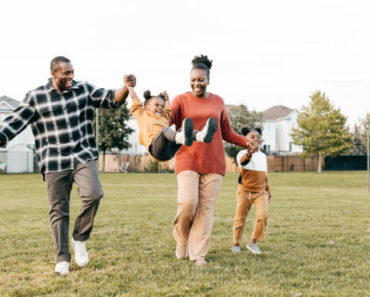Contents
- 1 Navigating Relationships: Supporting Mental Health in Dating a Recovering Addict
- 2 Understanding the Challenges of Dating a Recovering Addict
- 3 Nurturing a Healthy Relationship: Tips for Dating a Recovering Addict
- 4 Seeking Professional Support: The Role of Therapy and Support Groups
- 4.1 How can I support my partner who is recovering from addiction while also taking care of my own mental health?
- 4.2 What are some warning signs or red flags to look out for when dating someone in recovery from addiction?
- 4.3 How can open and honest communication be maintained in a relationship with a recovering addict to foster trust and understanding?
- 4.4 Related Posts

Falling in love and dating a recovering addict can be a whirlwind of emotions. There’s the joy of connection, the excitement of getting to know someone special, but also the uncertainty of navigating their situation with addiction. This relationship requires understanding, patience, and open communication. So, We’ll explore the dynamics of dating someone in recovery, highlighting the importance of self-care, setting healthy boundaries, and fostering a supportive environment.
Let’s say you connect with someone amazing, but they’re also in a moment of recovery from addiction. It’s a situation that can bring awesome things, but also some bumps along the road. The key? Being there for their mental health and well-being. Here are some tips to build a strong, supportive connection:
1. Educate Yourself: Take the time to understand addiction, its impacts, and the recovery process. This knowledge will help you empathize with your partner and offer appropriate support.
2. Communicate Openly: Establish open lines of communication and encourage your partner to share their feelings, concerns, and triggers. Create a safe space where they feel comfortable discussing their mental health.
3. Set Boundaries: Establish healthy boundaries that respect both your partner’s recovery journey and your own needs. Understand what may trigger them and avoid situations or substances that might jeopardize their progress.
4. Be Supportive: Offer encouragement and celebrate their milestones and achievements. Show empathy, understanding, and patience during challenging times. Let them know that you are there for them.
5. Encourage Self-Care: Promote self-care practices like exercise, healthy eating, and engaging in hobbies or activities that bring them joy. Encourage them to seek professional help or attend support groups if needed.
6. Practice Self-Care: Taking care of your own mental health is equally important. Seek support from friends, family, or professionals if you feel overwhelmed or need guidance on how to best support your partner.
7. Avoid Enabling Behaviors: It is essential to avoid enabling behaviors that may hinder your partner’s recovery. Learn to distinguish between support and enabling, and be mindful of not unintentionally enabling addictive patterns.
8. Celebrate Progress: Celebrate your partner’s progress and acknowledge their efforts in maintaining their sobriety. Recognize the milestones they have achieved and show appreciation for their commitment to their mental health.
Supporting someone in recovery is a marathon, not a sprint. It takes patience, understanding, and a lot of heart. But by putting their mental health first and keeping the lines of communication wide open, you can build a relationship that’s both strong and supportive, even when things get bumpy.
Understanding the Challenges of Dating a Recovering Addict

When dating a recovering addict, it is crucial to understand the unique challenges that may arise in the relationship. This section will delve into the potential hurdles and how to navigate them, offering insights on communication, trust-building, and self-care.
Dating someone in recovery from addiction can be emotionally challenging for both parties involved. The individual in recovery may be dealing with triggers, cravings, and emotional instability. It is essential to cultivate open and honest communication, where both partners feel comfortable expressing their concerns, fears, and expectations. Empathy and patience are vital in supporting your partner’s recovery journey.
Establishing trust is another significant aspect of dating a recovering addict. Due to past actions and experiences related to addiction, trust may have been broken in the past. It is important to recognize that rebuilding trust takes time and consistency. Being reliable, keeping promises, and showing understanding can help in rebuilding trust in the relationship.
Lastly, taking care of yourself while dating a recovering addict is crucial. This means setting boundaries, prioritizing self-care, and seeking support when needed. Remember, you cannot control your partner’s recovery, but you can support it. Engaging in self-care activities and seeking assistance from support groups or therapy can help you maintain your own mental well-being.
Nurturing a Healthy Relationship: Tips for Dating a Recovering Addict
While navigating a relationship with a recovering addict, it is essential to prioritize the health and well-being of both individuals involved. This section outlines practical tips for fostering a healthy relationship, focusing on open communication, understanding triggers, and celebrating milestones.
First and foremost, open and honest communication is key. Encourage your partner to express their feelings and concerns openly, and actively listen without judgment. Communication can help reduce misunderstandings and promote understanding between both partners.
Understanding triggers is crucial when dating a recovering addict. Educate yourself about the potential triggers specific to your partner’s addiction and discuss strategies to avoid or cope with them together. Supporting your partner in recognizing and managing their triggers can contribute to their overall recovery journey.
Celebrate milestones, no matter how small, to acknowledge your partner’s progress in recovery. Showing appreciation and supporting their achievements can boost their confidence and strengthen your relationship. Remember to be patient and celebrate progress at their pace, rather than imposing external expectations.
Seeking Professional Support: The Role of Therapy and Support Groups

When dating a recovering addict, seeking professional support through therapy and support groups can be highly beneficial for both individuals in the relationship. This section discusses the role of these resources in promoting mental health and sustaining a healthy partnership.
Therapy can provide a safe space for both individuals to explore their emotions, challenges, and expectations within the relationship. Consider attending therapy sessions together to foster open communication, address any concerns, and strengthen your bond.
Support groups, such as Al-Anon or Nar-Anon, can offer guidance and a sense of community to partners of recovering addicts. These groups provide a platform for sharing experiences, gaining insight, and receiving support from others who may have similar experiences. Attending support groups can help you navigate the unique challenges of dating a recovering addict while offering you a support network.
Remember, seeking professional help is not a sign of weakness but rather an act of strength and commitment to nurturing a healthy relationship. By prioritizing mental health and seeking external support, you can provide a strong foundation for your partnership while supporting your partner’s recovery journey.
How can I support my partner who is recovering from addiction while also taking care of my own mental health?
Supporting your partner’s recovery from addiction while taking care of your own mental health can be challenging, but it’s crucial for both of you. Here are some suggestions:
1. Educate yourself: Learn about addiction, its effects, and the recovery process. This will help you understand what your partner is going through and how to best support them.
2. Set boundaries: Establish clear boundaries to protect your own mental health. Communicate your needs and expectations with your partner, ensuring that both of you have space and time for self-care.
3. Seek professional help: Encourage your partner to seek professional addiction treatment. Recovery programs provide specialized support and guidance. You may also benefit from therapy or counseling to navigate your emotions and challenges.
4. Practice open communication: Foster an environment of open and honest communication. Encourage your partner to express their feelings and concerns, and listen non-judgmentally. Share your own thoughts and emotions as well.
5. Focus on self-care: Prioritize your own mental well-being by engaging in activities that bring you joy and relaxation. Make time for hobbies, exercise, meditation, or spending time with loved ones. Taking care of yourself allows you to be a better support system for your partner.
6. Attend support groups: Consider attending support groups like Al-Anon or Nar-Anon, which are specifically designed for friends and family members of individuals struggling with addiction. These groups provide support, guidance, and community.
7. Encourage healthy habits: Promote and engage in healthy activities together, such as exercise, cooking nutritious meals, and practicing mindfulness. These activities can have a positive impact on both your mental and physical health.
8. Avoid enabling behaviors: While offering support, it’s important not to enable addictive behaviors. Avoid covering up for your partner’s mistakes or providing financial support that may be used for drugs or alcohol. Encourage accountability and responsible decision-making.
9. Celebrate milestones: Acknowledge and celebrate your partner’s progress along their recovery journey. Small victories can boost their motivation and reinforce positive behaviors.
10. Practice patience and understanding: Recovery is a lifelong process, and setbacks may occur. Show patience, understanding, and empathy during these times. Encourage your partner to learn from their mistakes without judgment.
Remember, it’s essential to prioritize your own mental health throughout this process. Reach out for support when necessary, and know that you don’t have to navigate this journey alone.
What are some warning signs or red flags to look out for when dating someone in recovery from addiction?
When dating someone in recovery from addiction, it’s important to be aware of the following warning signs or red flags:
1. Secretive or evasive behavior: If your partner is being secretive about their activities or whereabouts, it could be a sign of relapse or engaging in risky behaviors.
2. Unstable emotions: Rapid mood swings, extreme highs and lows, or sudden outbursts of anger can indicate emotional instability, which could be a result of their ongoing recovery process.
3. Lack of accountability: If your partner consistently avoids taking responsibility for their actions or blames others for their problems, it could be a sign that they are not fully committed to their recovery.
4. Continued association with enablers: Surrounding oneself with people who may enable or support destructive habits can hinder recovery progress. Pay attention to your partner’s social circle and whether they continue to spend time with individuals who may pose a risk to their sobriety.
5. Resisting support networks: If your partner is unwilling to attend support group meetings or engage in therapy, it could suggest a lack of commitment to their recovery or an aversion to seeking external help.
6. Financial difficulties: Struggling with managing money or experiencing frequent financial hardships could indicate potential issues with substance misuse, as addiction often impairs one’s ability to prioritize financial responsibilities.
7. Repeatedly breaking boundaries: Continuously disregarding personal boundaries, such as borrowing money without permission, invading privacy, or pushing for enabling behaviors, might signal a lack of respect or disregard for their own recovery and your relationship’s wellbeing.
It’s crucial to approach these warning signs with empathy, understanding, and open communication. If you notice any of these red flags, it’s important to address your concerns with your partner and encourage them to seek additional support or professional help if needed.
How can open and honest communication be maintained in a relationship with a recovering addict to foster trust and understanding?
Maintaining open and honest communication in a relationship with a recovering addict is crucial to fostering trust and understanding. Here are some key strategies to achieve this:
1. Establish a safe and judgment-free space: Create an environment where the recovering addict feels comfortable expressing their thoughts and emotions without fear of criticism or shame. Assure them that you are there to listen and support without judgment.
2. Active listening: Practice active listening by paying full attention when the person is speaking. Show empathy, validate their feelings, and avoid interrupting or jumping to conclusions. This allows the person to feel heard and understood.
3. Encourage open dialogue: Encourage the recovering addict to express their thoughts, concerns, and experiences openly. Let them know that their voice is valued and that you are willing to discuss any topic related to their recovery journey.
4. Be non-defensive: It’s important to remain calm and non-defensive when discussing difficult topics. Avoid becoming argumentative or taking things personally. Remember that the focus should be on understanding and supporting the person rather than winning an argument.
5. Practice empathy and understanding: Try to put yourself in the recovering addict’s shoes and understand their perspective. This helps to build empathy and allows for more meaningful conversations. Acknowledge the challenges they face and offer genuine support and encouragement.
6. Be patient: Recovery is a challenging process, and setbacks may occur. Patience is key when dealing with a recovering addict. Understand that it takes time to rebuild trust and communication. Celebrate progress and offer support during difficult times.
7. Seek professional help if needed: If communication difficulties persist or become overwhelming, consider seeking the assistance of a therapist who specializes in addiction and mental health. They can provide guidance and facilitate productive conversations.
So, communication in any relationship takes work, but especially when your partner is in recovery. The key? Building a safe space where you can both be totally honest, no sugarcoating. Here’s how: Be a good listener, really listen to their struggles and triumphs. Encourage open conversations, let them know you’re always there to talk. Don’t get defensive if things get tough, remember it’s about supporting them. Try to see things from their perspective, that’s what empathy is all about. And most importantly, be patient, recovery isn’t a straight line. If you ever feel overwhelmed, don’t hesitate to seek professional help together, a therapist can be a great resource for couples.
Keep in mind, dating a recovering addict requires empathy and understanding. It is crucial to prioritize their mental health and be supportive throughout their recovery process. Communication, trust, and the willingness to educate oneself about addiction are key components in building a strong and healthy relationship. Remember that recovery is a lifelong journey, and it is important to respect their boundaries and self-care practices. By fostering a loving and nonjudgmental environment, both partners can grow together and build a resilient relationship based on trust, compassion, and resilience.






